In the first edition of our revamped interview segment, we sat down with business psychologist and chief executive of Impact: Psychology for Business, Shelly Rubinstein. Among the topics of discussion were New Year resolutions, Impact’s 25 year anniversary and Shelly’s favourite places to relax in Manchester.
How was your festive break?
We had a wonderful 2 weeks in The Holy Land, we went to a Christmas Eve bell ringing concert in Jerusalem at the YMCA, a culinary tour of the food market and, an exhibition of impressionist paintings in Tel Aviv and we relaxed at a desert oasis and spa by the Dead Sea. Highly recommended.
Do you have any resolutions for 2019?
My usual which is to continue striving to improve health and wellbeing for myself and others through my work and play. Having fun every day in some way, eating well, exercising and getting enough sleep. I find doing things for others gives me perspective which is why I volunteer in social care settings with older people with dementia. Bingo and the Tuesday dance bring a smile to my face as much as to the residents.
Impact are celebrating their 25th anniversary this year, what was your driving force behind becoming an Occupational Psychologist?
I was going to be a lawyer, but I changed my mind when I did a voluntary youth leadership course which looked at the psychology of groups. I did Psychology at University and was inspired by Professor Peter Herriot who made me realise that people spend a great deal of their lives at work and if they are not happy at work their lives may be unfulfilled and lead to mental health issues. I wanted to do something that would help people to get the right fit at work, to develop them to reach their potential and if things did go wrong, to help by mediating conflict or managing work-related stress. It has been a rewarding carer that has impacted on so many people over the years, I am grateful to work with talented colleagues and collaborative clients. I am glad that I made the decision, although some of my best friends are lawyers!
What plans do Impact have over the next 12 months?
We are growing, we are recruiting ourselves and using the scientific methods that we use with clients. We are celebrating by writing a book using our clients’ experiences, we will be gathering current and previous clients together to say thank and celebrate at an event to be announced. We are launching a new range of services and promoting our products, it is going to be a very exciting year.
Talent is one of Impact’s core pillars (alongside Performance, Leadership and Change). What do you think are the biggest issues when it comes to recruiting talent in the legal profession?
Differentiating yourselves to offer what is important, it is not just about money, the organisational culture and development opportunities are just as important to people. Treating people well throughout the recruitment process is crucial, so that people feel valued. When assessing candidates, we get feedback that is not given to the recruiter and candidates tell us that matching their values with the organisation is important to them and that they can tell from the start if a firm does not practise what they preach. Authenticity is valued. Candidates like to know that it is a fair and valid process and that justice has been done in the selection.
We hear a lot about unconscious bias in recruitment, from a psychologist’s perspective, can you say more about what this is and what advice can you give to help to combat it?
Our brains make rapid judgements and assessments of people; we categorise them according to physical attractiveness, age, ethnicity, gender, disability, tattoos etc. This is because of our preferences or prejudices that we have grown up with and what is seen to be socially acceptable. People may not be aware of them and how this can have an impact in the recruitment process. We know that diversity statistics prove that these biases are still in play at senior levels in organisations and if we don’t make a conscious effort to change, we will continue making the same mistakes, that have negative consequences for those companies who may be challenged at any stage in the recruitment process.
Being aware of this brings it into our consciousness and helps us to consider whether we might have an unconscious opinion that is triggered by seeing a candidate or an employee. We may believe that we are not racist, misogynist or anti-Semitic, but our behaviour might demonstrate something else without us even realising. Once we become aware of all the opinions that we hold we can ensure that we are treating people fairly by being objective and using some of the following approaches:
- Ensuring the recruitment process minimises the impact of bias by making it consistent, structured and with a long enough time frame. Using professionally qualified advisers, consulting with a diverse range of people from different social backgrounds who will be working with the new colleague all contributing to a considered decision-making process can be key in minimising the potential for biased decision-making.
- For trainees: adopting a blind CV policy, where interviewing partners are not given information as to what school/university a candidate attended (public vs. private, Oxbridge or not, etc to remove a halo effect). Some places remove the name to hide the gender and race which has been used in the past to decline trainees due to unconscious bias.
- When recruiting Partners: engaging an external provider to do due diligence to supplement any references provided by a candidate. Working in partnership with a reputable recruitment agency who practise unbiased screening helps to provide another perspective.
What are the key benefits for working with trained professional psychologists when recruiting talent?
We can protect our clients because we use evidence-based approaches. I am a Chartered Psychologist, which means that I abide by the code of ethics and practice of the British Psychological Society. We use research-based methods of recruitment that are scientifically tested to help identify someone’s potential performance on the job. We advise our clients on the most suitable and fair process for recruitment and help our clients to hire the people whose performance is likely to be the highest, ensuring the most effective organisational fit.
The benefits are:
- Recruiting high-quality people, who will contribute to the overall productivity and profit for the business.
- Saving on recruitment costs (and other associated costs) by making good hiring decisions first time around.
- A smooth transition, resulting in less disruption and a happy workforce overall.
- Protects your business’ reputation, leading to more applications in the future.
- A fairer recruitment process that makes financial sense. A McKinsey study into diversity and financial performance concluded that gender-diverse companies are 15% more likely to outperform the national industry median, with ethnically diverse companies being 35% more likely.
- Legal protection by using research-based methods that are reliable, valid, fair and sensitive.
What’s the best part about your job?
When we see people progress in their careers so that they can make a difference to others and feel happy while they are doing it. People regularly get in touch to say their coaching or assessment or stress management work has made a difference to them and their families, that makes me smile.
You are a Manchester-based business, where is your favourite place to relax?
I love being outside so a local walk in Hurst Wood, Heaton Park or Philips Park are all great in any weather, walking gives me perspective and is relaxing. Taking visitors from abroad for a walk around the city centre makes me look more closely at the architecture and the history knowing that women suffrage, fighting against poverty and for equality as well as Mr Rolls meeting Mr Royce at the Midland Hotel had their roots here. Relaxing over a good G and T is also good, there are too many excellent places in Manchester to choose one.
About Shelly Rubinstein
Shelly Rubinstein, Chief Executive of Impact – Psychology for Business since founding it in 1994, is a Chartered Psychologist and Associate Fellow of the British Psychological Society. Shelly has been facilitating, coaching and carrying out organisation management and leadership development in the public, private and voluntary sector for over 25 years. Recognised as a national expert in authentic leadership, workplace performance, talent and complex change, she has made several TV and radio appearances about sexual harassment, stress at work, workplace bullying and other occupational psychology issues.



